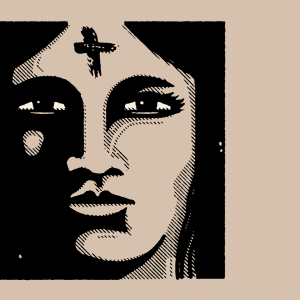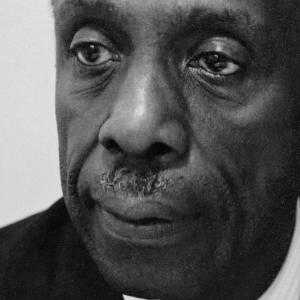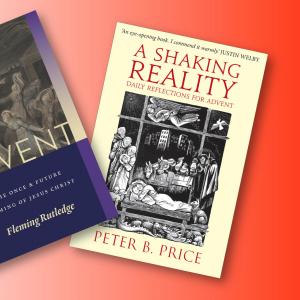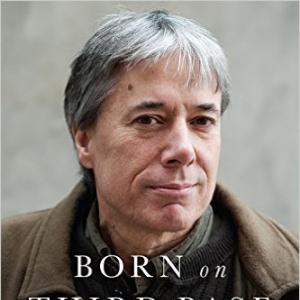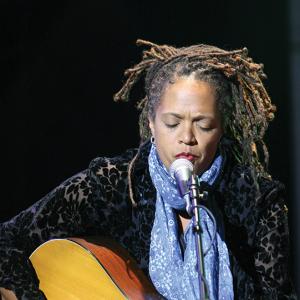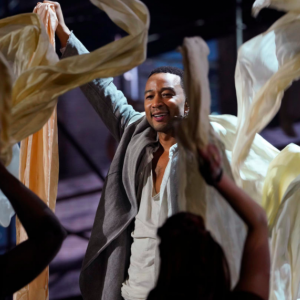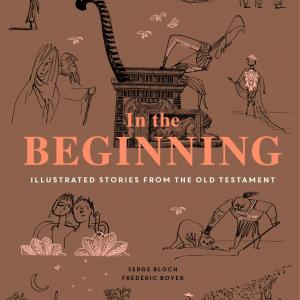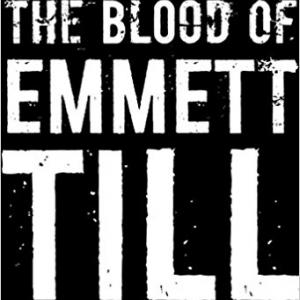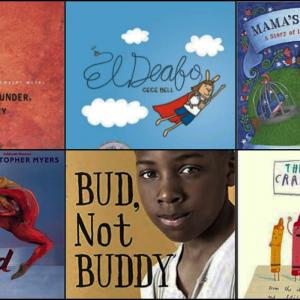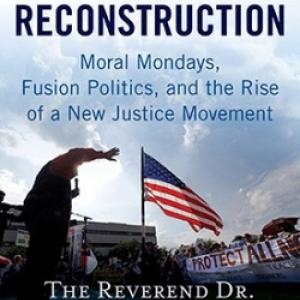
Julie has been a member of the Sojourners magazine editorial staff since 1990. For the last several years she has edited the award-winning Culture Watch section of the magazine. In her time at Sojourners she has written about a wide variety of political and cultural topics, from the abortion debate to the working class blues. She has coordinated in-depth coverage of Flannery O’Connor, campaign finance reform, Howard Thurman, the labor movement, and much more.
She studied English literature at Ohio State University and has an M.T.S. (focused on language and narrative theology) from Boston University and an M.F.A. in creative nonfiction from George Mason University.
Julie grew up on a farm in the northwest corner of Ohio. She has been fascinated by the power of religious expression in and through culture since she can remember. Obsessively listening to her older sister’s copy of the Jesus Christ Superstar cast recording when she was 10 was an especially crystallizing experience. In addition, Julie’s mother often argued about doctrine and the Bible and took her at least weekly to the public library, both of which were useful background for Julie’s current work.
She lives in the Columbia Heights neighborhood of Washington, D.C. and is a member of St. Margaret’s Episcopal Church (where she had an unlikely four-year reign as rummage sale czarina). Her personal interests overlap nicely with her professional ones: Music, books, reading entertainment, culture, and religion writing, art, architecture, TV, films, and knowing more celebrity gossip than is probably wise or healthy. To make up for all that screen time, she tries to grow things, hike occasionally, and wonder often at the night sky.
Some Sojourners articles by Julie Polter:
Replacing Songs with Silence
Censorship, banning, blacklists: What’s lost when governments stifle musical expression?
Extreme Community
A glimpse of grace and abundance from - of all things - reality TV.
The Cold Reaches of Heaven
Nobel Prize-winning physicist Bill Phillips talks about his faith.
Just Stop It
Daring to believe in a life without logos. An interview with journalist Naomi Klein.
Women and Children First
Developing a common agenda to make abortion rare.
Obliged to See God (on Flannery O’Connor)
Posts By This Author
Lent Is Grimness You Didn't Know You Needed
There's wisdom in dwelling on all that is broken.
ON ASH WEDNESDAY the dust from which we came and to which we return is daubed on Christians’ foreheads. It is an intimate reminder that the Spirit of God breathes in us and we live; without the Spirit we crumble.
To be more Christlike means facing death in all its forms—the death of reputation, the death of truth, and the bodily death of our beloveds. Lenten scriptures keep before us stories of temptation, failure, and the heavy machinery of this empire or that, always shifting into position to crush those who threaten human power and wealth. There are hints of resurrection in the lectionary readings, but the pain and destruction of dreams and life that comes before is given its full due.
We are too well acquainted with the world and its ways not to imagine what massacre or plague filled that valley with dry bones in Ezekiel’s vision. And, in John’s gospel, Jesus is confronted by Lazarus’ grieving, accusing sister. Why did you not come when called? Mary demands, while Lazarus was alive and could be healed. The story is raw with the pitch of her rage and Jesus’ own tears.
Mystic Resistance
A review of ‘Backs Against the Wall: The Howard Thurman Story,’ written and directed by Martin Doblmeier.
ONE OF THE MOST influential figures in the African-American civil rights movement did not march, organize, or speak at mass rallies. Mystic Howard Thurman found spiritual revelation in nature, championed the use of dance, theater, and nontraditional music in worship, and incorporated silence in his sermons. But his books, preaching, and teaching provided vital philosophical and spiritual underpinnings for the nonviolent resistance methods championed by Martin Luther King Jr. and other civil rights leaders.
Backs Against the Wall: The Howard Thurman Story, airing on PBS in February, is a documentary by Martin Doblmeier, the award-winning creator of films on faith including An American Conscience, Chaplains, and Bonhoeffer. In this rich, one-hour portrait of Thurman, civil rights leaders Jesse Jackson Sr., Rep. John Lewis, and others—as well as scholars such as Alton B. Pollard III, Walter Earl Fluker, Luther E. Smith, and Lerita Coleman Brown—offer insights on Thurman’s life, legacy, and the dynamic tension between contemplation and social justice.
The film’s title is from Thurman’s book Jesus and the Disinherited , published in 1949—said to have been carried by King and often cited by other civil rights leaders. Thurman wrote: “The masses of [people] live with their backs constantly against the wall. They are the poor, the disinherited, the dispossessed. What does our religion say to them?”
Thurman’s lifelong engagement with this question produced wisdom as vital for our day as it was for his.
'Even to the End of the Age'
A review of two advent-themed books.
TWO NEW ADVENT-THEMED books bring deep wisdom for this liturgical season.
Peter B. Price is a retired Church of England bishop with decades of experience advocating on the ground and in the halls of power for peace and reconciliation in conflict situations around the world. His new book, A Shaking Reality: Daily Reflections for Advent, takes its title from a mediation written by a German priest, Alfred Delp, S.J., while imprisoned by the Nazis.
Price reflects on Delp (who was later executed for being in the resistance) and the “courage and witness” of others in these graceful meditations for each day of Advent. He writes about the world’s brokenness from his sensibilities as a pastor—acknowledging structures that harm and oppress, while guiding readers toward what Delp called “God’s promise of redemption and release.”
A Whirlwind in a Wildfire
Revenge fantasies, however justified they may feel, are not the same as God's righteous anger.
The falsehoods are so thick, the hypocrisies so outrageous, the corruption so rife, the processes so broken that you don’t know if you trust anyone anymore. The vulnerable are mocked or torn from their parents’ arms. Men in expensive suits say “Lord, Lord,” like they own air and mineral rights to the Most High. But their God, the one you thought—if but reluctantly—that you shared, is no god you recognize.
How can the pieces ever be put back together, the damage undone? What is gospel truth now?
A knot of self-righteous rage, tangled inextricably with despair, owns your gut. The accusing thought comes that you’re complicit. You’ve not done enough; you’ve saved no one. Guilt is the final straw. A voice not quite your own yet completely your own snarls: “Burn. It. Down.”
11 New Books for Your Unrequired Reading List
Resist the tyranny of trends—read more.
FEWER AMERICANS ARE reading for pleasure. According to the latest American Time Use Survey, the portion of Americans who read just for the joy of it on a given day has fallen by more than 30 percent since 2004.
I’m choosing to resist the tyranny of trends—by reading more. Lately that’s meant sinking into a sprawling novel about trees, who, it turns out, are an active force, not just part of the scenery. The Overstory, by Richard Powers, is also about community, family, conscience, love, and fighting the powers.
My editorial colleagues are also making time to read. Their stacks include sci-fi (Blackfish City, by Sam J. Miller); historical fiction ( Homegoing, by Yaa Gyasi and Pachinko by Min Jin Lee); a novel spanning Roman-occupied Jerusalem to the 21st century (Eternal Life, Dara Horn); short stories (The Largesse of the Sea Maiden, by Denis Johnson); poetry ( Don’t Call Us Dead, by Danez Smith); essays (Feel Free, by Zadie Smith); biography ( Galileo’s Daughter: A Historical Memoir of Science, Faith, and Love , by Dava Sobel); and many more.
Below are some nonfiction books that might fit in your leisure reading mix.
Wealth and the Common Good
Born on Third Base: A One Percenter Makes the Case for Tackling Inequality, Bringing Wealth Home, and Committing to the Common Good. Chelsea Green.
WRITER AND ACTIVIST Chuck Collins, the great-grandson of meatpacker Oscar Mayer, gave up his inheritance when he was 26 and has spent the subsequent decades working to address economic inequality and environmental issues. Via email with Sojourners senior associate editor Julie Polter, he discussed his newest book, Born on Third Base: A One Percenter Makes the Case for Tackling Inequality, Bringing Wealth Home, and Committing to the Common Good (Chelsea Green)—and why organizing and building community across economic lines is good for everyone.
Sojourners: What is your main message in this book?
Chuck Collins: I want to invite wealthy and affluent people to “come home”—to return from wandering in the desert of wealth and privilege, the disconnection from community and place. It means putting a personal stake in reversing the deepening ruts of extreme wealth inequality and the ecological crisis. If we read the signs of the times, we understand this is both in our selfish interest as well as strengthening the common good. These inequalities and ecological challenges are undermining the quality of life for everyone, including wealthy people. There is no wealth on a degraded planet.
By reconnecting with people and places, we come out of exile. Racial and economic advantage is a “disconnection drug”—distancing us from both the suffering and the joy of being a human.
Many of the ultra-wealthy are “placeless” and “stateless”—literally holding multiple passports with money globalized in offshore financial centers around the world. So “coming home” means bringing the wealth home too—taking it out of the offshore tax havens, out of the global financial casino (“going off the Wall Street grid,” as one of the people I interview in Born on Third Base says), and out of the fossil fuel industry.
How to Love Like You are Dying
Two new books wrestle with death and beauty
THE ART OF ... book series from Graywolf Press focuses on writing craft and criticism. In each compact volume an accomplished writer takes on a single element or theme. The most recent entry in the series is The Art of Death, by Edwidge Danticat.
Danticat’s reflections on a wide variety of literature that wrestles with death—from Taiye Selasi’s debut novel, Ghana Must Go, to C.S. Lewis’ A Grief Observed—offer insights for readers as much as for writers. She explores the complicated emotional landscape of death and mourning, but also the myriad ways, tangled in questions of both justice and mercy, that death comes: accident, illness, deadly disasters, suicides, executions.
The Food of Love and Memory
People are creatively digging into justice issues while celebrating food as a gift.

Jason Person / Shutterstock
KARLA VASQUEZ, director of community programs at With Love Market and Café in south Los Angeles, takes a live-and-let-live approach to cooking and nutrition. In classes at the recently opened market—whose mission includes increasing access to affordable fresh food in an underserved area—she encourages people to try new foods. But the bottom line, she told Sojourners: “You don’t like kale? I will never make you eat it.”
Vasquez doesn’t teach a catechism of “healthy vs. unhealthy” foods. A community organizer with culinary training, she instead focuses on giving class participants tools for healthier, but realistic, eating: how to understand nutrition labels and cook those healthy ingredients, so they can have food that will work for them. So in a class on “guilty pleasures” Vasquez discourages the guilt, instead offering ways to gently alter beloved dishes to maximize flavor and make them more nutritious, rather than give them up completely. She calls a class on all-vegetable dishes “cooking the rainbow,” emphasizing the beauty and taste of dishes made vibrant with a variety of produce—because she knows if she used the word “vegan,” many of her students might balk. “They’d say ‘That’s not for us—that’s what hipsters eat!’” she says.
With Love Market (withlovela.com) is a for-profit business that promotes a social bottom line. Along with the food market and classes, there is a café and a community garden. With Love pays its staff an above-average wage and specifically recruits employees from the neighborhood, hoping to help long-time Latino/a and African-American residents stay despite the pressures of gentrification. And it tries to create a space where long-term and newer residents of all backgrounds, plus students from the nearby University of Southern California, feel welcome.
From Stage to Page
Harmonizing the vocation of scholarship and the call of music.
JUDITH CASSELBERRY'S ORIGINAL LOVE WAS MUSIC. She has been a guitarist and vocalist her entire adult life, including a 1980 to 1994 stint as part of the duo Casselberry-DuPreé. She now performs with Toshi Reagon and BIGLovely. She has shared the stage with Sweet Honey in the Rock, Odetta, Stevie Wonder, Etta James, and Elvis Costello, among others.
Along the way, while still performing, Casselberry earned her bachelor’s degree (in music production and engineering) and then, a few years later, a master’s in ethnomusicology, during which she discovered a passion for teaching. So she went to Yale, earning a doctorate in African-American studies and anthropology in 2008. She is an associate professor of Africana studies at Bowdoin College in Brunswick, Maine, teaching courses on African-American women’s religious lives, music and spirituality in popular culture, music and social movements, and issues in black intellectual thought.
Casselberry’s forthcoming book, The Labor of Faith: Gender and Power in Black Apostolic Pentecostalism (Duke University Press), employs feminist labor theories to examine the spiritual, material, social, and organizational work of women in a New York-based Pentecostal denomination, Church of Our Lord Jesus Christ of the Apostolic Faith (COOLJC). In the course of her research, Casselberry immersed herself for more than two years in the life of True Deliverance Church in Queens, N.Y. She spoke by phone with Sojourners senior associate editor Julie Polter in late January.
Sojourners: You examine the “religious work” of women—including prayer, teaching, care for the sick and grieving, liturgical music and movement, and guiding converts. Why did you choose this framework?
Beyond the 'Single Story'
Books as diverse as the kids who read them.

Monkey Business Images / Shutterstock
TO FIND BOOKS for young people by and about people from a variety of perspectives—including race, sexual orientation, gender, religion, class, and disability—the children’s librarian at your school or the public library will often be the place to start (read why we need diverse children's literature in our December issue article, "Stories for All God's Children"). If you’re fortunate enough to have an independent bookstore in your area with a robust children’s department, the staff there may also be of help.
If in-person advice is in short supply where you live, several online sites can also provide ideas. These include the website of the Cooperative Children’s Book Center at the University of Wisconsin-Madison (ccbc.education.wisc.edu/books), which has bibliographies and booklists on a wide range of topics and population groups. The We Need Diverse Books campaign website (weneeddiversebooks.org) has a variety of resources for finding diverse books for young people, including a list of other websites that focus on books featuring certain demographics or on diversity in specific genres. ThePirateTree.com features interviews, reviews, and other articles from a collective of children’s and young adult book writers interested in children’s literature and social justice issues. School Library Journal (slj.com) is a key source of reviews and other publishing information for librarians and teachers who work with children and teens.
The following are examples of recent books that break free of the restraints of a “single story.”
Families, by Shelley Rotner and Sheila M. Kelly, is a picture book for very young children that describes and celebrates all different configurations of families. Holiday House (Ages 2 to 6)
Thunder Boy Jr. is the first picture book by beloved young-adult fiction author Sherman Alexie. Illustrated by Mexican- American artist Yuyi Morales, it is the exuberant story of a little boy who is nicknamed after his father but wishes instead for a name “that celebrates something cool that I’ve done.” Little, Brown Books for Young Readers (Ages 4 to7)
The Resurrection of ‘Jesus’
My obsessive inner nerd rose to attention. You couldn’t have seen resurrection in Jesus Christ Superstar because there was no resurrection in Jesus Christ Superstar. That was the point! [I online shouted.] That’s why some considered it scandalous — a very human Jesus, a Judas who makes a lot of sense if you listen to him, and no Jesus rising from the dead. It doesn’t deny the resurrection. It just stops beforehand
Myths and Migrants
Tisha M. Rajendra discusses her new book, Migrants and Citizens: Justice and Responsibility in the Ethics of Immigration (Eerdmans), with Sojourners senior associate editor Julie Polter.
Tisha M. Rajendra discusses her new book, Migrants and Citizens: Justice and Responsibility in the Ethics of Immigration (Eerdmans), with Sojourners senior associate editor Julie Polter.
The Bible According to an Oversized Book of Cartoons
Line drawings and sparse prose offer an unusual—but winsome—portal to the holy word.
IT HAS BEEN A TIME of shadows and warnings, bursts of violence and the creeping stain of betrayal. Falsehoods, at first a dripping faucet over a tin bucket—the hint of failing seals and valves, the promise of future corrosion—have become a downpour. Disintegration seems the rule.
Where to find a true story, one that endures?
Scripture might seem the logical turn for a Christian. But I know my weaknesses. Left to my own devices, I cherry-pick favorite verses, I swerve away from difficult passages. I rarely read anything in the Old Testament except the prophets—and those while too often presuming I stand with them, already on their side, and God’s: Nothing for me to hear, except the echo of the woe and correction I’d like to dole out to others. A situational loss of hearing that is a sure path to perdition.
But then I was introduced to an unusual portal to the holy word, one that easily charmed its way past my conscious and unconscious scriptural biases: a 500-plus-page coffee-table book whose bronze cover is adorned with line drawings of people who are at turns winsome and ominous. With title and highlights in fluorescent orange, the design is reminiscent of some DayGlo-kissed whimsy from the 1960s. In the Beginning: Illustrated Stories from the Old Testament (Chronicle Books) retells, through images and spare prose that is both fresh and respectful of the scriptural sources, core stories of the Judeo-Christian tradition, from creation and the Garden of Eden to Daniel in the lions’ den.
Business and the Gospel of Enough
Why I train future business leaders to see the common good as part of their bottom line.
JoAnn Flett decided at a young age that she loved both spreadsheets and Jesus. After more than 20 years of senior accounting and management experience, she now directs the masters in business administration program at Eastern University, a theologically informed curriculum with a strong sense of social justice that equips students with business acumen to serve God and society through business. She sat with Sojourners senior associate editor Julie Polter in June to tell her story.—The Editors
When we think of the church and business, we tend to think of them at opposite ends of a spectrum. We often think of businesspeople as a certain kind of person, one that doesn’t conjure up the best images of humanity.
I was privileged, early on, to have friends who were very successful business leaders. What drew me to them was that they were people whose faith mattered to them; they led their organizations without making a big fanfare about this, but they were leading from a faith perspective.
I admired that they ran successful companies that transformed their employees, their business partners, and their local communities. But nobody seemed to celebrate them in their local churches. It’s easy to think of teachers and nurses, people in the “helping professions,” as doing God’s work. Yet there are people of faith who lead powerful and influential organizations. These people go to work and make critical decisions, and their faith has all kinds of implications about how they live in the world, but their work is not being affirmed on Sunday.
The Murder That Sparked the Civil Rights Movement
Nearly sixty years before Ferguson, a mother took a sacred stand against white terrorism.
ON A HIGH PLATFORM in the National Museum of African American History and Culture in Washington, D.C., sits a glass-topped casket. The museum’s deputy director, Kinshasha Holman Conwill, has called it “one of our most sacred objects.”
The casket once held the body of 14-year-old Emmett Till, an African-American boy from Chicago who, while visiting family in Mississippi in the summer of 1955, reportedly whistled at a white woman named Carolyn Bryant at a country store. A few nights later her husband and brother-in-law kidnapped Till, beating and murdering him before fastening a heavy industrial fan to his neck with wire and throwing the body into the Tallahatchie River. The local sheriff ordered Till’s body to be buried the same day it was found. Instead, one of Till’s great uncles intervened and made sure the body was returned to his mother in Chicago.
Mamie Till-Mobley allowed photographers from Jet and Ebony magazines to take pictures of Till’s mutilated face and insisted on an open casket and public viewings. Tens of thousands filed by Till’s broken body.
25 Books in Our Resistance Library
I asked colleagues here at Sojourners: What books would be in your resistance library? Their top 25 suggestions are below. Use the hashtag #MyResistanceLibrary to track our reads — and share to let us know what you’d add to the list!
10 Children's Books That Celebrate Our Diverse World
Where do we find quality stories for children about a diverse world? Not books that preach, but that evoke empathy and curiosity and different perspectives through good stories and/or art? As is the case across all publishing categories, books by and about people of color (or people who are not able-bodied or citizens or middle-class or otherwise conforming to a mainstream standard) are in the minority.
Better Together
The Third Reconstruction: Moral Mondays, Fusion Politics, and the Rise of a New Justice Movement, by William J. Barber II with Jonathan Wilson-Hartgrove. Beacon Press.
DURING A FRACTIOUS election year marked by “how low can you go?” rhetoric, a hopeful word about democracy can be hard to find. When our civil society and citizenry seem evermore splintered by issues of race, immigration, wealth inequality, women’s health, guns, and ideology, who would dare speak with sincerity about finding common cause and increasing enfranchisement?
Rev. William Barber II, for one. In The Third Reconstruction: Moral Mondays, Fusion Politics, and the Rise of a New Justice Movement, he argues that “fusion coalitions rooted in moral dissent have power to transform our world from the grassroots community up.” He believes that people committed to different causes, of different races and faiths and no faith, can come together to advance broader justice and perhaps even revive a democracy that has seen better days.
He believes this because he’s seen it: He helped forge the 2013 “Moral Mondays” protests in North Carolina that brought more than 100,000 people to rallies across the state protesting voting restrictions and corporate-funded extremist legislation, and had sister rallies in several other states. But this wasn’t a spontaneous eruption—the broad-based coalition behind Moral Mondays first formed in 2007 to advocate for expanding voting rights.
In this book Barber, a Disciples of Christ pastor and president of the North Carolina chapter of the NAACP, uses autobiography and U.S. history to root the story—the successes, failures, and wisdom gained—of the work that led to the Moral Mondays campaign and beyond.
As a young pastor, Barber learned valuable lessons when he participated in a failed effort to unionize a textile factory in Martinsville, Va. In the aftermath, he meditated on Psalm 94 (“Who rises up for me against the wicked? Who stands up for me against evildoers?”) and found there the spiritual mandate for sustained moral dissent, even when political victory is out of sight. But he also took an honest look at his strategic failings; a key one was not bringing white pastors and workers into the effort, allowing the white factory owners to divide and conquer the workers along racial lines. His wariness from his own negative experiences with white people had tripped him up. He writes:
Sacred Courts
An interview with Onaje X.O. Woodbine on the grace, power, and transcendence of street basketball.

Andrey Bayda / Shutterstock
IN 2000, sophomore Onaje X.O. Woodbine was Yale basketball’s leading scorer and one of the top 10 players in the Ivy League. From the outside it must have seemed like a dream come true for a young man who grew up playing street ball in the Roxbury neighborhood of Boston.
But Woodbine felt isolated and excluded by the white players on the team, troubled by what he’s described as “a locker-room culture that encouraged misogyny,” and hungry to focus on his studies and wrestle with deeper philosophical and theological questions. So he quit basketball.
Woodbine eventually returned to the courts of his youth as a researcher, studying the practice and culture of street basketball for his doctoral studies in religion at Boston University. Woodbine is the author of Black Gods of the Asphalt: Religion, Hip-Hop, and Street Basketball (Columbia University Press) and a teacher of philosophy and religious studies at Phillips Academy in Andover, Mass. He spoke with Sojourners senior associate editor Julie Polter in May.
Julie Polter: What led you to study street basketball from a religion scholarship angle?
Onaje X.O. Woodbine: When I was 12 years old, I lost my coach. He was my father figure; I didn’t have my father for most of my early childhood. It was just devastating.
I went to the court the next day to look for him. I felt his presence in that space. It was really the only place, looking back, where I felt safe, I felt whole, where I felt like my inner life was valuable, where there was a whole community whose interest was in my growth as a human being.
From the Archives: July-August 1995
To the Public Square

NATALIA61 / Shutterstock
CAN THE words “Christian” or “faith” appear in proximity to political issues? And if they do, what should they mean? On May 23, a delegation of U.S. Christian leaders came to Washington, D.C., to proclaim to the press and the country’s political leadership that yes, faith and values are vital to the public life—and if they are genuinely expressed they should transform our discourse, policy, and social fabric. What true biblical faith doesn’t do is let religious conviction be manipulated by partisan politics.
“America is fed up with what many in the church are doing, polarizing us into Left and Right. Christians are called to a politics of reconciliation,” said Tony Campolo at a press conference held that morning. ...
